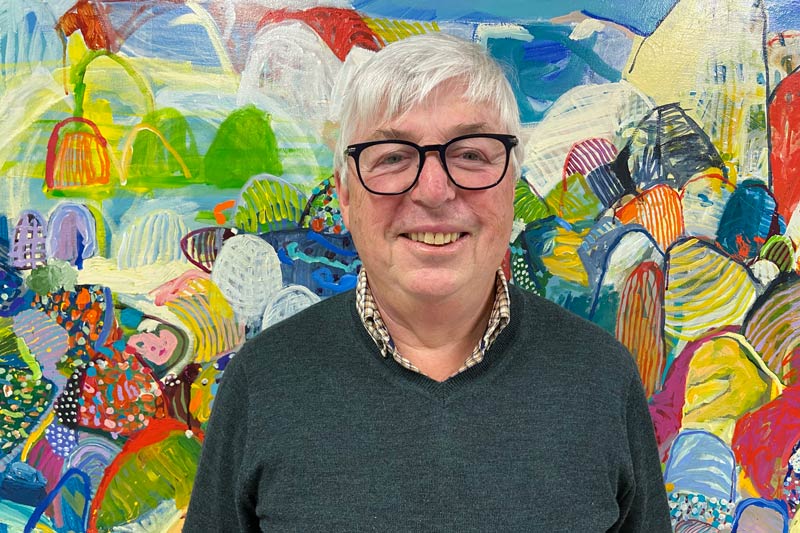Barry may never have known he had prostate cancer if it wasn’t for a compulsory health check when he took on a new contract as a petroleum geologist in Perth in the late nineties. He was in his mid-forties, feeling healthy and was looking forward to working in Perth for a short period.
Having experienced no symptoms at all, Barry was surprised when a prostate specific antigen (PSA) test revealed elevated PSA levels, which can be indicative of prostate cancer. On his return to Melbourne he visited his GP. It was decided to monitor for a period and when the PSA results continued to show a rise, he was referred to a urologist. He underwent a biopsy that did not detect cancer, therefore continued monitoring of his PSA levels was recommended by the urologist.
It wasn’t until Barry was 54 that biopsies revealed prostate cancer. At that time, Barry explored the options available and in 2007 opted for a radical prostatectomy for the best chance of removing the cancer.
Now in his late sixties, Barry is candid when it comes to talking about the side effects of the surgery that removed his prostate. He believes that men need to talk about these matters and not stay silent, and he is quite happy discussing them with his friends, family and acquaintances.
“With me I have always been happy to discuss the prognosis, surgery, and outcomes.”
But I have noticed that men have often been hesitant about mentioning their prostate cancer and subsequent issues until I have mentioned mine. Barry
What Barry wants people to know this Prostate Cancer Awareness Month 2023
This September, Barry wants to share that the side effects may be initially unpleasant, but they do improve with time and the right treatment and support. The two most difficult side effects of the prostatectomy that Barry experienced were urinary incontinence and erectile dysfunction. He discovered a frustrating lack of public toilets when he travelled overseas after surgery and was left with the discomfort and embarrassment of wearing incontinence pads that had overfilled.
In 2015, Barry had surgery to insert a pelvic sling. The results were immediate and he no longer has an incontinence problem.
In 2021, a prostate specific P.E.T. scan showed a recurrence of the cancer in two lymph nodes. Following these results, Barry commenced a targeted course of radiotherapy and hormone treatment, which have been successful.
The effects of a prostatectomy on sexual wellbeing, commonly feared by many men, was another challenge for Barry and one that he believes could be very hard for some men to navigate. Barry says that communication with a trusted friend or partner would make these difficulties easier to deal with. He wants other men to know that there is excellent medical and pharmaceutical support around to manage these issues now too.
It’s now been close to thirty years since the possibility of having prostate cancer was first raised with Barry and he’s heartened by the advancements that have taken place in treatment and care for men with prostate cancer, including less invasive surgical and medical options, and better management of surgical side effects with new medications and more focus on preparing for recovery from surgery, such as pelvic physiotherapy.
Attending a support group
Barry attended his first Prostate Cancer Support Group at Epworth Freemasons recently. The Support Group is an initiative of the E. J. Whitten Prostate Cancer Research Centre and is facilitated by Centre staff, Thili and Mia. Barry decided to attend as he was interested in hearing from other men about their experiences and being able to share the knowledge he has gained from having prostate cancer.
Throughout his diagnosis and treatment, Barry has maintained a positive outlook and an active lifestyle, which may give reassurance to men who are early in their prostate cancer journey. Barry also values the updates he gets from his medical oncologist and the Epworth clinicians about developments in treatments and the promising research that is underway.
With his prostate cancer now managed with monitoring and new treatment through a clinical trial, Barry is enjoying travel and spending time with family.
“In terms of the future, I have no worries. I have my three-monthly PSA check and follow up with my oncologist and look forward to getting on with life,” Barry says.
Prostate Cancer Awareness Month - September 2023
30 August 2023

